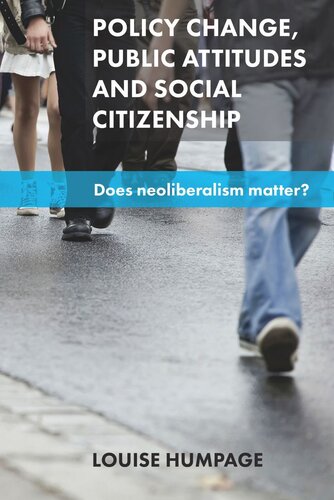

Most ebook files are in PDF format, so you can easily read them using various software such as Foxit Reader or directly on the Google Chrome browser.
Some ebook files are released by publishers in other formats such as .awz, .mobi, .epub, .fb2, etc. You may need to install specific software to read these formats on mobile/PC, such as Calibre.
Please read the tutorial at this link: https://ebookbell.com/faq
We offer FREE conversion to the popular formats you request; however, this may take some time. Therefore, right after payment, please email us, and we will try to provide the service as quickly as possible.
For some exceptional file formats or broken links (if any), please refrain from opening any disputes. Instead, email us first, and we will try to assist within a maximum of 6 hours.
EbookBell Team

5.0
20 reviewsNeoliberal reforms have seen a radical shift in government thinking about social citizenship rights around the world. But have they had a similarly significant impact on public support for these rights? This unique book traces public views on social citizenship across three decades through attitudinal data from New Zealand, the United Kingdom and Australia. It argues that support for some aspects of social citizenship diminished more significantly under some political regimes than others, and that limited public resistance following the financial crisis of 2008-2009 further suggests the public ‘rolled over’ and accepted these neoliberal values. Yet attitudinal variances across different policy areas challenge the idea of an omnipotent neoliberalism, providing food for thought for academics, students and advocates wishing to galvanise support for social citizenship in the 21st century.